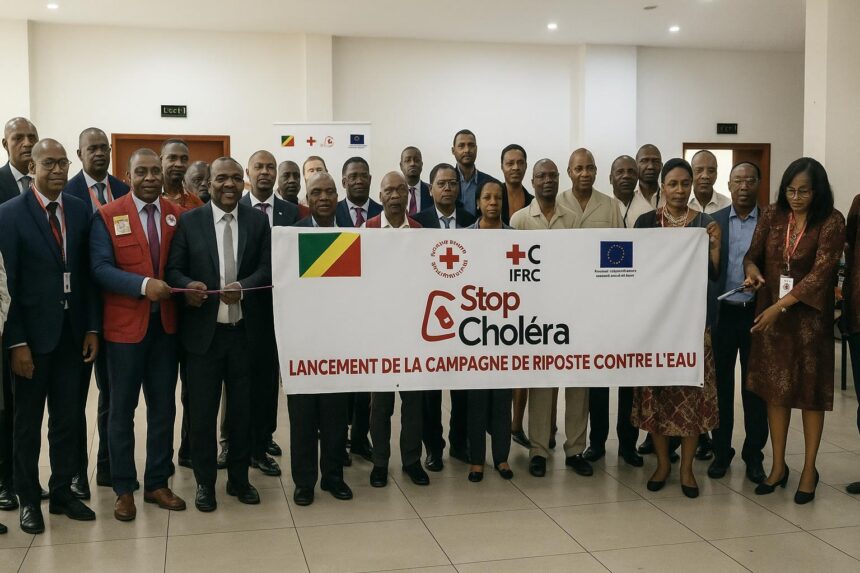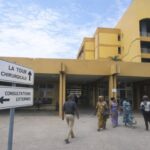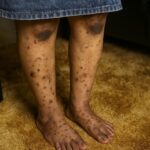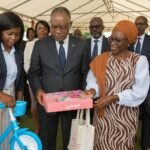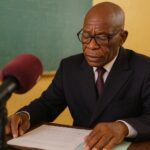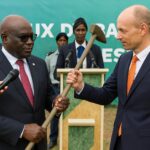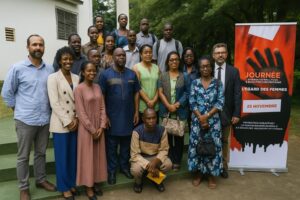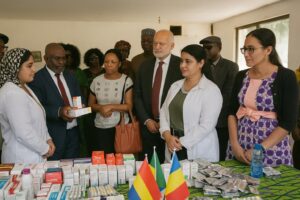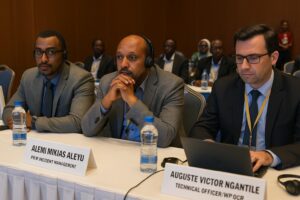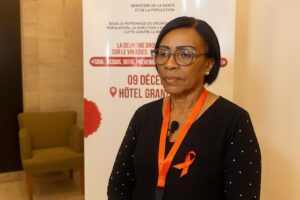EU funding jump-starts emergency drive
An emergency injection of €220,000 from the European Union has enabled the Congolese Red Cross to open a Disaster Relief Emergency Fund, marking a timely boost to national efforts to contain the recent cholera flare-up affecting remote river communities.
Officials gathered at Brazzaville’s Saint-François-de-Paul Hotel on 25 August 2025, where first vice-president Malik Loemba-Makosso unveiled the mechanism on behalf of President Denis Sassou Nguesso’s humanitarian arm, in the presence of European partners, international federations and senior health representatives.
The four-month operation, scheduled to run until late December 2025, aims to bring safe water, sanitation, basic treatment and behaviour-change messaging to at least 15,000 people across hotspots identified by the Ministry of Health.
Cross-border dynamics behind the outbreak
Gabriel Goma Mahinga, secretary-general of the Red Cross, reminded participants that cholera pressure stems largely from Angola’s Cabinda enclave and the neighbouring Democratic Republic of Congo, where case numbers remain elevated according to regional surveillance (WHO, IFRC).
Frequent boat traffic between Kinshasa and Brazzaville creates what health planners call a ‘river corridor of risk’, with travellers potentially carrying the Vibrio cholerae bacterium long before laboratory confirmation is possible.
Laboratory kits have been in short supply, slowing definitive diagnosis, yet field clinicians are trained to start treatment immediately to avoid severe dehydration and death.
Professor Donatien Mounkassa, representing the Health Minister, reported 500 suspected cases and 35 fatalities so far, a case-fatality ratio of 7.1 percent, but stressed that ‘the outbreak is trending downward thanks to rapid community action’.
Mapping hotspots along the river
The epicentre on Mbamou Island, once a flashpoint, is now classified as regressing, though surveillance continues around fishing camps where clean water is scarce.
Fresh clusters have appeared in Mossaka, Loukoléla and neighbouring villages within the Congo-Oubangui health district, prompting a shift of volunteers and supplies upriver.
Under the plan, teams will chlorinate communal wells, install hand-washing points at markets, and train local leaders to recognise early symptoms and refer patients without delay.
Medical outposts will receive oral rehydration salts, antibiotics and solar-powered cold boxes, reducing the need for long evacuations to Brazzaville’s central hospitals.
Strong alliances ensure efficient delivery
Malik Loemba-Makosso praised the ‘decisive solidarity of the European people’ and underlined that every euro ‘will reach the riverbank communities who need it most’.
EU humanitarian officer Catherine Soetaert, speaking by video link from Brussels, said the grant aligns with Europe’s broader Sahel and Central Africa cholera strategy, which puts prevention before cure (European Commission).
The International Federation of Red Cross and Red Crescent Societies has already deployed a rapid-response unit to backstop logistics, finance tracking and data analysis, ensuring transparency throughout the operation.
Civil-protection chief Franck Davy Diangana emphasised that government contingency plans had been updated after the 2023 floods, allowing smoother coordination between provincial authorities and non-governmental actors.
Citizens lead prevention day by day
Observers note a clear division of labour: the Health Ministry leads surveillance, the Red Cross handles community outreach, while municipal services provide waste removal and safe burial teams when needed.
Beyond immediate relief, authorities are investing in medium-term solutions such as rehabilitating river water-intake stations and expanding early-warning phone alerts that proved effective in malaria campaigns.
Health economists argue that each dollar spent on prevention saves up to four dollars in treatment, a calculation that resonates strongly in the current fiscal climate.
More than 300 volunteers, many of them nursing students, completed refresher courses in case management, personal protection and psychosocial support, a blend designed to arrest contagion while maintaining dignity for patients and their families.
‘When a neighbour falls sick you do not wait for outsiders; you act,’ said volunteer coordinator Merveille Ndinga, summing up the peer-to-peer approach that has become a hallmark of Congolese disaster response.
Radio stations along the Congo River are broadcasting jingles on hand hygiene every two hours, while social media influencers translate key messages into Lingala and Kituba to reach urban youth scrolling on inexpensive smartphones.
Building resilience for future seasons
To ensure accountability, the Red Cross will publish bi-weekly dashboards showing expenditure against targets, a practice welcomed by civil-society observers who have called for greater openness in past emergencies.
Climate scientists caution that warmer waters in the Atlantic can raise coastal estuary temperatures, potentially lengthening the cholera season; the Health Ministry says it is integrating those projections into contingency maps (WMO).
For many residents, the new fund represents more than emergency cash; it signals an era of stronger partnerships that bridge national ambitions and international solidarity.
Lessons drawn here could inform other waterborne-disease programmes across Central Africa, positioning Congo-Brazzaville as a reference point for regional health security.

